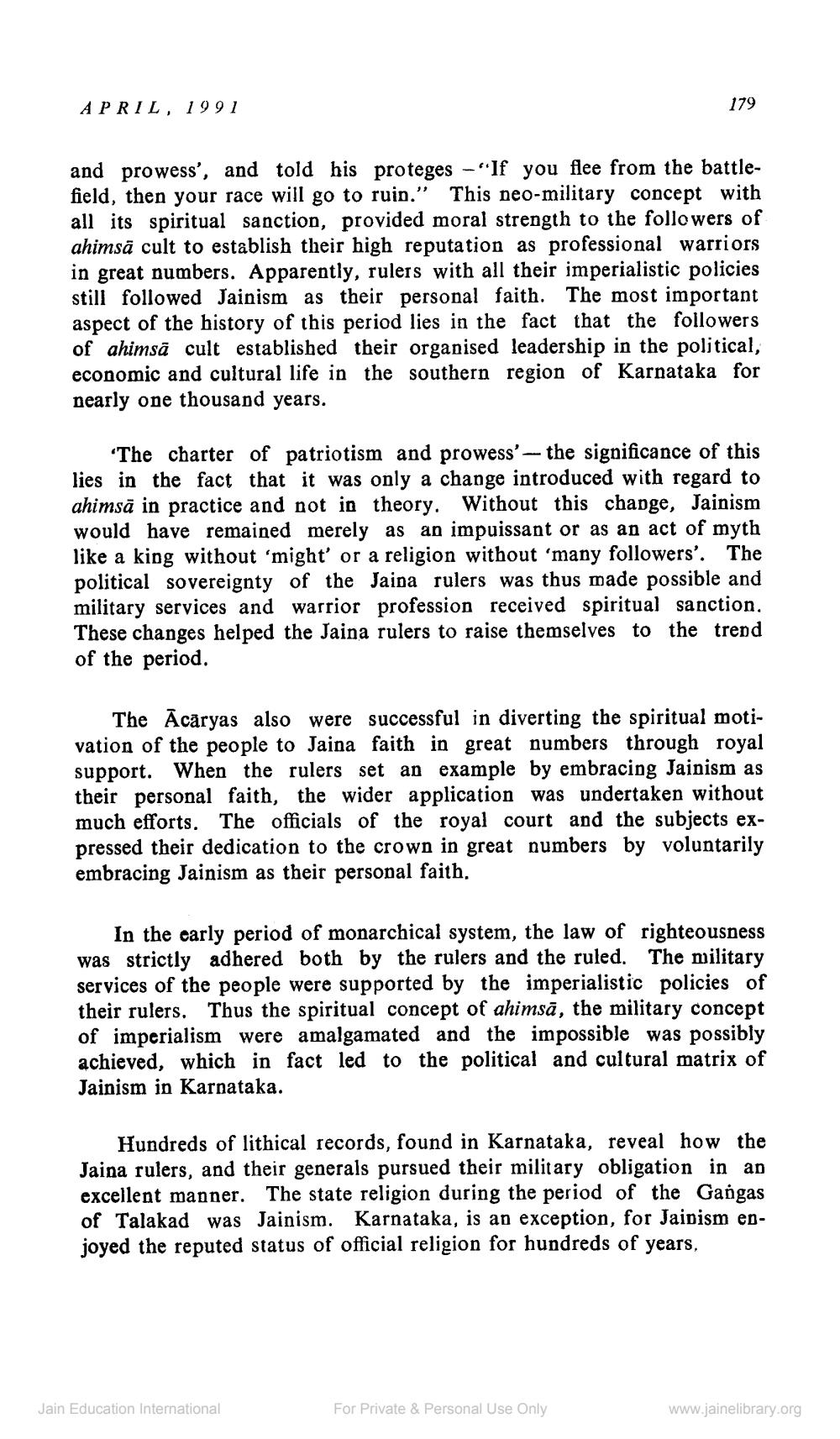________________
APRIL, 1991
179
and prowess', and told his proteges - If you flee from the battlefield, then your race will go to ruin." This neo-military concept with all its spiritual sanction, provided moral strength to the followers of ahimsā cult to establish their high reputation as professional warriors in great numbers. Apparently, rulers with all their imperialistic policies still followed Jainism as their personal faith. The most important aspect of the history of this period lies in the fact that the followers of ahimsā cult established their organised leadership in the political, economic and cultural life in the southern region of Karnataka for nearly one thousand years.
'The charter of patriotism and prowess' - the significance of this lies in the fact that it was only a change introduced with regard to ahimsā in practice and not in theory. Without this change, Jainism would have remained merely as an impuissant or as an act of myth like a king without 'might' or a religion without 'many followers'. The political sovereignty of the Jaina rulers was thus made possible and military services and warrior profession received spiritual sanction. These changes helped the Jaina rulers to raise themselves to the trend of the period.
The Ācāryas also were successful in diverting the spiritual motivation of the people to Jaina faith in great numbers through royal support. When the rulers set an example by embracing Jainism as their personal faith, the wider application was undertaken without much efforts. The officials of the royal court and the subjects expressed their dedication to the crown in great numbers by voluntarily embracing Jainism as their personal faith.
In the early period of monarchical system, the law of righteousness was strictly adhered both by the rulers and the ruled. The military services of the people were supported by the imperialistic policies of their rulers. Thus the spiritual concept of ahimsā, the military concept of imperialism were amalgamated and the impossible was possibly achieved, which in fact led to the political and cultural matrix of Jainism in Karnataka.
Hundreds of lithical records, found in Karnataka, reveal how the Jaina rulers, and their generals pursued their military obligation in an excellent manner. The state religion during the period of the Gangas of Talakad was Jainism. Karnataka, is an exception, for Jainism enjoyed the reputed status of official religion for hundreds of years,
Jain Education International
For Private & Personal Use Only
www.jainelibrary.org




